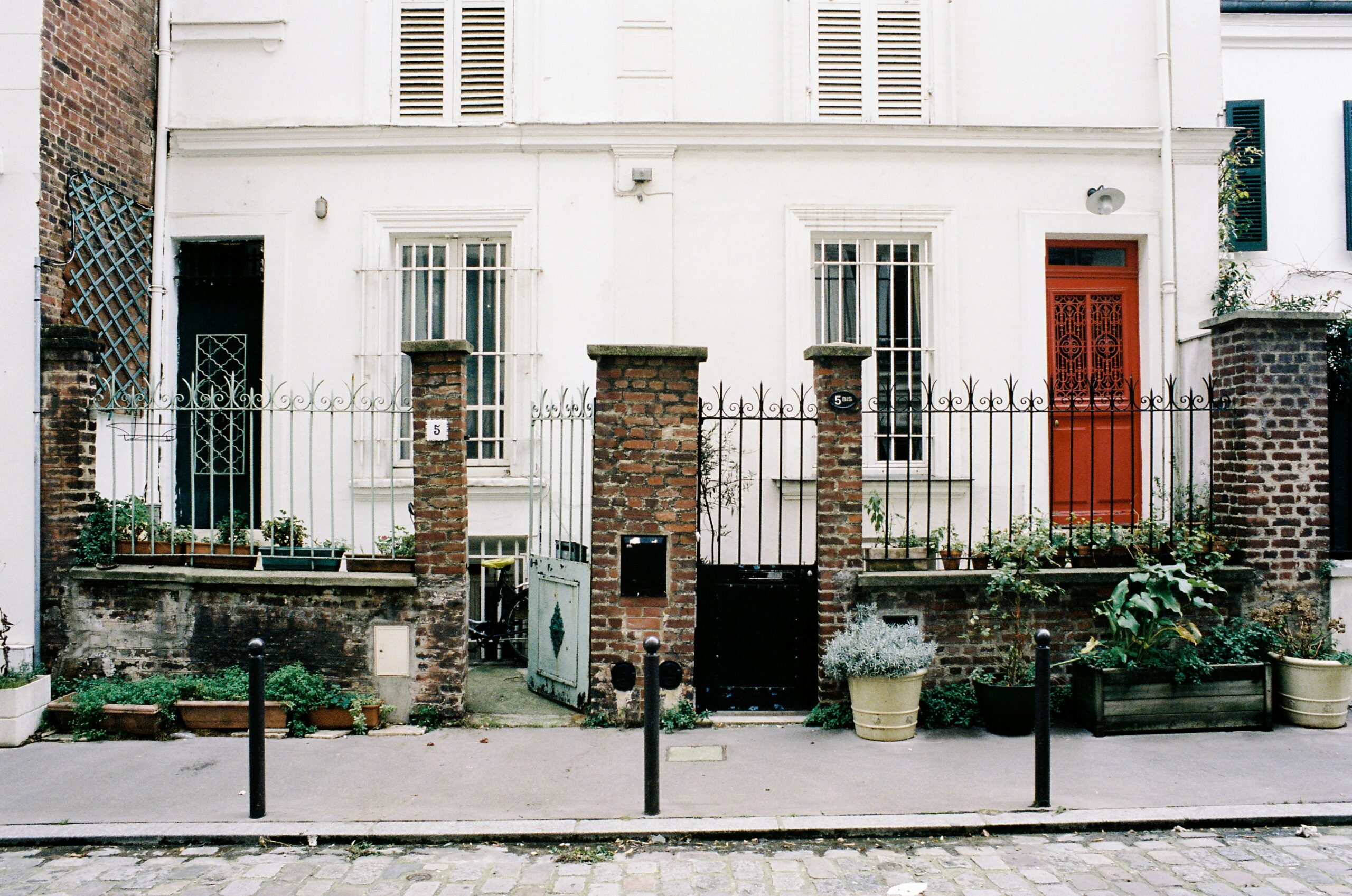Section 1: Renting process – Legal Tips
Section 2: Property Management Guide – Practical Tips
Section 1: Renting process
It’s quite common for people to opt for renting homes in France, with around 36% of the population choosing this kind of accommodation. This trend is shaped by various factors, and among the most important is the high cost of property ownership. (European Commission)
Before anything, it’s crucial to understand the aspects of renting an apartment in France. French real estate regulations impose conditions for property owners or tenants looking to lease a property.
For instance, when it comes to primary residences, there are restrictions on the duration you can rent them out. You can only lease them for a maximum of 120 days (roughly 4 months) per year. Typically, this means you can rent them out for 10 days each month.
Regarding secondary residences, you have two options for renting out: long-term or short-term. If you opt for the short-term and want to use your property as a vacation rental, you must get permission and pay a tourist tax.
The duration of long-term rentals varies depending on whether they’re furnished or unfurnished. Furnished rentals typically require a minimum lease period of 1 year, while unfurnished ones usually extend to 3 years. Student tenants usually fall under a 9-month lease term.
As the property owner, you can ask tenants for a guarantee to ensure they can sustain the lease until its end. Only if the tenant’s income is over three times higher than the monthly rent the tenant will no longer have to comply with this requirement.
Nevertheless, if needed, there are ways to insist on applying this guarantee rule.
-
- Have the tenant pay the rent upfront;
-
- Require a financial guarantor;
-
- Have the tenant pay up to two months’ refundable security deposit (for potential property damage).
Contrat de location or bail (Lease agreement)
The rental agreement, or the lease, officially recognizes the transaction and lists the rights and obligations of the landlord and tenant.
A landlord has to provide a formal tenancy agreement or a contract de location, or bail if the property serves as the tenant’s primary residence. Many French landlords have their own agreements or standard agreements that can be purchased from most good bookshops.
Four approaches to the preparation of a tenancy agreement are possible:
- Use one of the standard forms of pre-printed tenancy agreements that can be purchased from any good bookshop.
- Use of a property professional such as an estate agent or huissier who may themselves have a model contract that can be used.
- Preparation of an agreement by a notaire who will provide a tenancy agreement as an acte authentique.
- Use the government-controlled service at DossierFacile, an online service that provides all the documents you will need.
In France, notarizing your agreement isn’t mandatory. But it can add an extra layer of security, making it easier to enforce in a dispute. Whether you go that route or not, ensure both parties have a signed copy.
Obligatory clauses
In a rental agreement, certain clauses are obligatory.
The agreement must include:
1. Names of tenant and landlord;
2. Address of the rented apartment;
3. If booked from the agency, the address of the rental agency;
4. Start and end date of the contract;
5. Contract renewal possibilities;
6. Obligations and responsibilities of tenant and landlord;
7. Amount of rent and deposit;
8. Insurance information;
9. A clause about rent increase;
10. Clauses about fines;
11 Methods for paying rent;
12. Inventory of the apartment;
13. Utility information (if it’s included in the rent);
14. Check-in and check-out information;
15. Information on notice periods for ending the contract.
Additionally, a landlord must annex the condition report—a technical report on the rental (Dossier de Diagnostic Technique)—and survey reports on energy performance (Diagnostic de performance énergétique) to the tenancy agreement.
Forbidden clauses
However, the law forbids some clauses, such as requiring tenants to pay rent directly from their salary or by standing order and any requirement to take out the insurance policy suggested by the landlord.
Additionally, it is against the law for a landlord to turn away or refuse to accept pets, whether for an annual tenancy or holiday accommodation.
Set the amount of rent
Generally speaking, a prospective tenant and the landlord can freely decide on the rent amount for a new tenancy. Nevertheless, if the property is the tenant’s primary residence, there are limitations on rate increases for newly leased apartments in France’s major cities.
Setting the right rent price means more than trying to make a profit. First, you cannot estimate the rent price of an apartment instantly; you must actively research it by Calculating Your Apartment Rent in France.
So take your time for the estimation process from the start, and do not rush.
One way is to contact a few local estate agents happy to provide this service for free.
Another option is to contact a local notaire who is well-versed in the area’s property prices and can provide you with an estimation at no charge.
You can also conduct your own research by checking property prices online and consulting the public land registry (cadastre).
It’s common for clients to instruct an agent on the price themselves. So, don’t hesitate to explore these options and find the best way to get an estimate of your property’s value.
Selecting Your Tenant
It is the most challenging issue and the top priority in the entire procedure because of the renters’ security of tenure. Let’s not overstate the situation: while most tenants fulfill their rental responsibilities most of the time, the problem of non-payment stays. Tenants in France are highly protected from eviction, so you should carefully select prospective renters.
This is why conducting thorough tenant background checks is crucial. We’ve discussed the legal and practical considerations landlords must keep in mind when conducting them in France, so feel free to check it out.
Vetting Documentation
Since France has no credit system, a potential tenant’s ability to pay is determined by their income. This implies that a landlord will ask for a lengthy list of documents to verify prospective candidates’ resources.
Every prospective tenant should be prepared to submit a dossier, which is short for “paperwork file.” A dossier should contain the following documents:
-
- Proof of identity (justificatif d’identité): ID card and passport and visa, if applicable, or residence permit;
- Current proof of residence;
- Employment contract and employer details (justificatif de situation professionnelle);
- Last three months’ salary/pension slips (justificatif de ressources);
- Proof of current address (justificatif de domicile): the last three rent receipts or electricity bills;
- Personal income tax returns for 2-3 years;
- Rental payment receipts from the last rental property;
- Guarantor attestation: a guarantor in France, or a bank guarantee from a French bank, or a company guarantee such as “Garantme”;
- Current rental insurance attestation.
The French Government has made a list of what is admitted in terms of documents to request by a landlord:
See the complete list of documents that a landlord can or is not allowed to ask for
Confidential Documents Landlord Cannot Demand
The owner/landlord is not entitled to demand certain documents that are considered too personal and confidential. These include:
-
- Photo portrait;
-
- VITALE Card;
-
- Social Security card;
-
- Letter/Certificate of good financial standing to a bank;
-
- Certificate of zero outstanding debt;
-
- Direct debit authorization;
-
- Marriage contract or cohabitation certificate;
-
- Divorce papers;
-
- Personal medical records;
-
- Criminal records (if applicable);
-
- Extract from any family record;
-
- Any financial proof intended to reserve or guarantee your accommodation;
-
- Request more than two balance sheets for self-employed workers & freelancers.
État des lieux (Inventory report)
After a tenant finds your property, the landlord and tenant need to sign a contract and complete an état des lieux, or inventory and condition report. État des lieuxis is the procedure of documenting the property’s condition when you start renting.
Our summary on Conducting the état des lieux (property condition report) provides more details about the inventory. You can also download the inventory sample to get familiar with the necessities of état des lieux.
Security deposit
A landlord usually demands a damage deposit (dépôt de garantie). Deposit can be used to offset the property’s neglect and rent arrears.
The amount of the deposit is, in part, regulated by the law: it is one month’s rent for unfurnished properties and two months’ rent for furnished flats.
Furthermore, unless otherwise stated, the tenant can’t use the deposit to pay last month’s rent.
The tenant will receive back the security deposit 60 days after moving out unless the property is damaged, in which case the landlord will retain the deposit to pay for the costs.
What are the differences between a deposit and a security deposit in the case of rental?
-
- The deposit is an amount that the guarantor will pay in case the tenant fails to pay; it is not refundable.
-
- The tenant, not his guarantor, pays the security deposit. The landlord collects this sum at the lease’s signing and returns it to the tenant.
Ending the Tenancy
The landlord must give the tenant notice six months in advance of the end of the lease if the apartment is unfurnished or three months if the unit is furnished. That is to say, if you decide against signing a new lease. However, a lease will automatically renew if you don’t give your renters any notice.
Similarly, a landlord may only issue an eviction notice in extremely limited circumstances. Evicting tenants involves lengthy procedures, complex legalities, and significant expenses, so be sure to gather all necessary information.
Helpful legal resources during a rental process
Section 2: Property Management Guide – Practical Tips
Where to advertise apartment listings
The methods used to advertise rental properties are relatively standard: estate agencies, websites, ads in local newspapers, noticeboards, etc.
In France, there is no centralized system of real estate listings, like the MLS in the U.S., so you have to look around a bit to find listings you can visit. The leading websites for listing rental apartments are Seloger.com – listings by real estate agents, Pap.fr – listings direct by the owner, Wunderflats, Lodgis, FUSAC (for listings in English for foreigners), Appartager (for apartments with roommates), Studapart (for students), Cité Université listings (for foreign students), etc.
Don’t forget to check these rules for advertising.
Marketing a French Rental Property
Where you look for renters largely depends on the specifics of your property, its location, and the kind of tenant you’re aiming for.
For instance, a deluxe apartment in downtown Paris might call for promotion, whereas a countryside cottage could simply benefit from a notice on the community bulletin board.
Moreover, it’s essential to determine whether you’ll be renting out the property furnished or unfurnished and whether you plan to target an international market.
You need to be strategic in marketing your property’s unique qualities because more and more new rentals are hitting the market.
For more straightforward advice, feel free to look for our Tips and tricks for marketing your property.
Protection Against Arrears of Rent
Are you wondering how to manage situations when tenants miss their rent payments? Discover the legal steps you can take and proactive strategies to reduce risks in our guide, How to Reclaim Unpaid Rent in France in 7 Steps.
House Insurance
When you’re a landlord in France, you must ensure your property is insured. This insurance covers you if something goes wrong with the building, like structural problems, or if you need to fix things and someone gets hurt because you didn’t.
You can also get an insurance policy that covers more than just injuries or damages—it can protect you against tenants not paying their rent.
For unfurnished rentals
If you rent out an unfurnished place, your tenants must also get insurance. This covers things like fires, explosions, or water damage they might accidentally cause.
At the very least, they need “risques locatifs” insurance. Still, getting “multi-risques d’habitation” insurance is wiser, as it protects their stuff, like furniture and electronics, from damage or theft.
Every year, the tenant must prove that they’ve renewed their insurance. If they don’t get this insurance, you can end the lease.
Compulsory apartment Insurance
The landlord can require the tenant to subscribe to a home insurance policy through his contract to mitigate risks of water damage, theft of contents, fire outbreaks, and explosions.
This proof of insurance must be shown at the first rent and every year after the policy’s renewal, as long as the tenant is still involved in the contract.
The landlord may also propose to prefinance the insurance policy subscription and have the tenant repay it later if he is not financially ready to do so since it is the tenant’s responsibility.
If the tenant decides not to take an insurance policy, this may lead to a breach of contract, and the landlord can choose to cancel the lease.
For furnished rentals
Some types of furnished rental leases require tenants to purchase renters insurance, but it is not always mandated. For this reason, it’s important that you, as the landlord, have good coverage. In fact, you may want to make it a condition, as tenants are still responsible for any damage they cause.
Some tenants might already be covered by their home insurance policies for short-term or holiday rentals for temporary stays, known as “garanti villégiature,” but it’s important to check this. This kind of cover usually lasts for a short time, up to three months.
You can also get a particular policy that covers anyone staying in your property for damage they might cause without suing them for compensation.
Adding a “clause of abandon de recours” means if something happens (like a fire or water damage caused by guests), your insurance will deal with it without going after the tenant for money. However, not all insurance companies will let you add this, which might cost more.
Most insurance policies have a “deductible” or “excess,” which you must pay out of pocket before the insurance kicks in. Because of this, you’ll probably want to take a security deposit from your tenants to cover any potential damages up to this amount.
Taxation
Landlords have three options for income taxation on profits from furnished accommodations: micro-enterprise, régime reel, and micro-fiscal for those registered as micro-entrepreneurs.
If you’re considering navigating income tax, VAT and special tax regimes, small business classification, calculating tax liability, and other tax dilemmas, check out our digest Tax on Rental Income in France: Tactics for Better Results.
Landlord protection
In France, the legal framework provides strong protections for tenants, which can make the eviction process particularly challenging.
While this is fantastic for tenants, it also means landlords require more guarantees.
Thus, owners can now sign up for GLI (garantie des loyers impayés) insurance. When a landlord signs up for GLI, the tenant has to show that he is qualified to rent the property. For instance, the tenant must usually be employed on a CDI contract (unlimited long-term employment contract) and earn three times the property rent.
Around a dozen insurance companies offer insurance in France, with the leading providers being Macif, Sacapp, Solly Azar, PGA Assurances, and Suffren Assurances associées (SAA).
Some banks, such as Crédit Agricole, Crédit Foncier, LCL, and Société Général, also offer the policies.
A common advice for landlords to ensure tenant affordability is that the rent you charge shouldn’t be more than one-third of what your tenant earns monthly after taxes. But, this is not a law, just a guidance. It depends on the landlord, on the renting company, on the city.
Policies coverage
Insurance companies that can cover you if the rent isn’t paid also want to check that your tenant is likely reliable. They’ll look at the papers you give them about your tenant’s job and income.
However, getting this insurance might be more challenging if your tenant is from another country and doesn’t have a solid work or business history in France. A retiree with a pension is usually seen as less risky.
If your tenant’s situation changes while renting from you, the insurance company agrees to that risk when it decides to insure you.
If your tenant misses a rent payment, you must follow specific steps outlined in your insurance policy to be able to claim money from the insurance.
This insurance usually covers 2.5% to 4% of the total rent, and you can often deduct this from your taxes. Insurance policies limit how much rent they’ll cover, but this isn’t usually a problem because the limits are pretty high.
There are also limits on how much unpaid rent the insurance will cover. Some policies cap this amount, but others don’t.
Most insurance covers lost rent and the legal costs of dealing with a non-paying tenant. The insurance company usually prefers to handle the legal stuff themselves, but you’ll need to do your part, like sending out any required notices to the tenant.
Some policies offer extra coverage for things like your property being empty for a while or damage caused by the tenant, but you’ll have to decide if the extra cost is worth it.
If all this sounds like a lot, you can hire a property manager to handle things for you.
The relationship with the tenant
Respecting and adhering to specific norms are essential for a positive working relationship between the tenant and landlord. As the owner, it is your responsibility to give your tenant a respectable rental that is secure and ready to go.
Still, if the initial positive exchange is disrupted for various reasons, there are ways to resolve interpersonal discussions amicably or, ultimately, through legal means.
Rent increases
Did you know there is a limit to how much a landlord can increase your rent annually? This limit is determined by an index that changes from year to year.
While some landlords choose not to increase rents, others may do so. And it’s normal as long as it falls within the current year’s index amount.
Also, some rental agreements may include an automatic rent increase for multi-year leases.
But how do rent adjustments work in France? Discover in our guide.
Please note: This article does not constitute legal advice – the information on this page has been prepared solely for your information. As we are not a law firm and act as a platform, we can and may share our estimations, but we cannot give you legal advice for your individual further proceedings.









